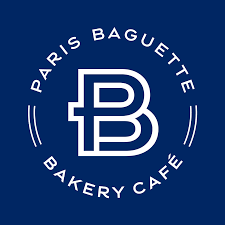Paris Baguette Franchise in 2025: Costs, Fee & FDD
Discover the ins and outs of investing in a Paris Baguette franchise, from costs and fees to earning potential and market positioning. Explore why this bakery café is thriving with impressive growth rates and robust support for franchisees.
Table of Contents:
Paris Baguette was founded in 1988 by Sang Lee, under the parent company SPC Group, a South Korean conglomerate well-known for its influence in the food and beverage industry. Paris Baguette isn’t just another bakery; it’s a brand that has artfully combined the sophistication of French baking traditions with the vibrant flavors of Korean cuisine. This fusion creates a unique experience that resonates with customers around the world. With a focus on quality and innovation, Paris Baguette has become a significant player in the global bakery café scene, offering a taste of Paris with a twist.
At its heart, Paris Baguette offers an array of freshly baked goods, from delicate pastries like croissants and éclairs to artisanal bread, cakes, and savory sandwiches. They also offer a variety of beverages, including coffee, tea, and smoothies, making it a versatile spot for any time of the day. Their core customers are diverse, ranging from morning commuters grabbing a quick bite to families enjoying a weekend treat. The franchise appeals to those who appreciate high-quality baked goods with a touch of elegance, serving both everyday needs and special occasions.
Paris Baguette has seen impressive growth, with over 4,000 locations worldwide, spanning more than 10 countries, including South Korea, China, the United States, and France. In the U.S. alone, the brand has been expanding rapidly, with a focus on major cities and suburban areas. This expansion is supported by a strong daily customer base that numbers in the millions globally, making Paris Baguette a familiar and beloved name in many households. The brand’s international presence is a testament to its ability to adapt and thrive in various markets while maintaining its distinct identity.
As a franchisee, you’re not just buying into a brand; you’re joining a community with a robust support system. Paris Baguette offers comprehensive training programs that cover everything from baking techniques to customer service and operational management. This ensures that each location maintains the brand’s high standards. Additionally, the franchise provides ongoing support in marketing, supply chain management, and product development, helping franchisees stay ahead of industry trends and customer preferences. The combination of a strong brand identity and solid support structure makes Paris Baguette an attractive option for potential franchisees looking to invest in a proven and growing concept.
Paris Baguette Franchise Insights
- Paris Baguette’s impressive year-over-year growth rate of 40% far outpaces the industry average of 1%, showcasing its strong market demand and successful business model.
- With a three-year failure rate of 0% compared to the industry’s 11%, the franchise demonstrates exceptional stability and resilience, making it a highly reliable investment opportunity.
- The franchise has a rich product portfolio with over 500 items, offering everything from classic French pastries to innovative Korean-inspired creations, catering to diverse tastes and boosting repeat business.
- Paris Baguette serves over 10 million customers daily across its global network of 4,000+ locations, reflecting its broad and dedicated customer base.
Paris Baguette Franchise Key indicators
Growth YOY (%)
40%
vs industry 1%
Total U.S. Franchised Units
137
3-Year Failure Rate
0%
vs industry 11%
Sales-to-Investment ratio
2.1:1
How much does it cost to open a Paris Baguette franchise?
Understanding the potential investment size and capital requirements is crucial when considering opening a Paris Baguette franchise. These financial commitments, including initial franchise fees, equipment costs, and ongoing operational expenses, impact the feasibility and profitability of the venture. Thoroughly evaluating these factors ensures that potential franchisees are prepared for the financial responsibilities and can make informed decisions about their ability to sustain and grow the business, ultimately contributing to long-term success.
Min & Max Investment
Opening a Paris Baguette franchise involves several key costs, which are outlined in Item 7 of the Franchise Disclosure Document (FDD). You can see a breakdown of the costs to open a Paris Baguette below from the most recent Item 7 below:
| Type of Expenditure | Minimum Investment | Maximum Investment |
|---|---|---|
| Initial Franchise Fee | $50,000 | $50,000 |
| Real Estate or Advance Rent and Security Deposit | $10,000 | $90,000 |
| Building Costs/Leasehold Improvements | $325,000 | $1,000,000 |
| Equipment and Fixtures | $167,956 | $315,000 |
| Signs | $7,500 | $25,000 |
| Smallwares | $25,000 | $30,000 |
| Point of Sale System, Hardware, Software, and Surveillance Equipment | $8,000 | $14,500 |
| Opening Inventory | $36,000 | $48,000 |
| Grand Opening Promotion | $12,500 | $12,500 |
| Licenses, Permits, Fees and Deposits | $4,510 | $18,710 |
| Miscellaneous Expenses | $11,159 | $16,500 |
| Insurance | $3,405 | $4,890 |
| Attorneys’ Fees and Business Consultants | $3,035 | $7,500 |
| Travel and Living Expenses While Training | $20,000 | $65,000 |
| Cost of Goods During Training | $4,000 | $4,000 |
| Additional Funds for First 3 Months of Operation | $30,000 | $100,000 |
| Total Estimated Initial Investment | $718,065 | $1,801,600 |
Item 7 in the Franchise Disclosure Document (FDD) is the “Estimated Initial Investment” section. It outlines the total costs a franchisee can expect to incur when starting a franchise, including the initial franchise fee, equipment, inventory, real estate, and other startup expenses. This section is crucial because it provides potential franchisees with a detailed understanding of the financial commitment required, helping them assess affordability and plan their investment strategy effectively.
Required Capital
To open a Paris Baguette franchise, the required capital involves both the initial investment costs and a net worth requirement set by the franchisor. Let’s take a closer look below:
- Initial Investment The total estimated initial investment for a Paris Baguette franchise typically ranges from $718,000 to $1,800,000. This includes costs such as the franchise fee, real estate, construction, equipment, initial inventory, and funds to cover initial operating expenses. Assuming that you will finance your franchise investment, you should plan to have 20% of the total investment amount in the form of equity (cash) for the investment.
- Liquid Assets Requirement Paris Baguette generally requires franchisees to have a minimum of $200,000 to $400,000 in liquid assets. This ensures that the franchisee has sufficient cash flow to manage unforeseen expenses and maintain financial stability during the startup phase.
- Net Worth Requirement It is generally recommended that Paris Baguette franchisees have a net worth of at least $1,000,000. This net worth assessment includes the value of assets like real estate, investments, and personal property, minus any liabilities, ensuring the franchisee has the financial capacity to support the business long-term.
How much does a Paris Baguette franchise owner make?
Calculating the salary of a Paris Baguette franchise owner involves analyzing gross sales to determine total revenue, assessing operational efficiency to understand profit margins, and accounting for franchisor fees and additional expenses such as rent, utilities, and payroll. Effective management of these factors can significantly impact the profitability and financial success of a Paris Baguette franchise owner. This comprehensive financial analysis helps estimate net profits, from which the owner’s salary can be derived. A clear understanding of these factors ensures accurate salary projections and financial planning for sustainable business operations.
Paris Baguette Revenue & Gross Sales
In 2023, Paris Baguette franchises achieved a median gross sales of $2,615,577, reflecting a 3% increase from the previous year’s $2,532,084. This consistent growth highlights the brand’s strong market presence and the potential for profitable returns for franchisees.
Which key factors impact the average revenue performance of Paris Baguette franchisees?
The growth in Paris Baguette’s U.S. franchisee median gross sales from 2022 to 2023 can likely be attributed to several key factors. First, the brand’s strategic expansion into new markets and prime locations may have boosted customer reach and foot traffic. Additionally, the introduction of innovative products and seasonal offerings likely attracted a broader customer base, driving repeat business. Another contributing factor could be the increased focus on digital and delivery platforms, which expanded access to their offerings beyond traditional in-store customers. Lastly, the brand’s strong marketing campaigns and community engagement initiatives may have strengthened customer loyalty, contributing to overall sales growth.
Paris Baguette Franchise Operational Costs
When opening a Paris Baguette franchise, there are several key ongoing operational costs to consider:
- Rent and Utilities Depending on the location, rent can be a significant expense, along with utilities such as electricity, water, and internet.
- Labor Costs Staffing is crucial for day-to-day operations, and wages, benefits, and payroll taxes will form a substantial part of ongoing expenses.
- Inventory and Supplies Regular purchases of ingredients, packaging, and other supplies are necessary to maintain product quality and consistency.
- Marketing and Advertising Local marketing efforts, promotional campaigns, and brand fees to the franchisor contribute to ongoing marketing costs.
- Maintenance and Equipment Repairs Keeping the equipment and premises in good working order involves regular maintenance and occasional repairs, which are ongoing costs.
- Insurance Business insurance, including liability, property, and workers’ compensation, is essential for protecting the franchise against risks.
These ongoing costs are critical to budget for, as they directly impact the profitability and sustainability of the franchise.
Paris Baguette Franchise Fees
When considering the ongoing operational costs of a Paris Baguette franchise, it’s important to account for several key fees that are essential to the franchise agreement. Here’s a breakdown of some of the relevant costs:
- Royalty Fee 5% of weekly Gross Sales, payable every Tuesday for the preceding week’s sales. This fee is automatically withdrawn from your designated bank account.
- Marketing Fund Fee Currently set at 2% of weekly Gross Sales, this fee is paid alongside the Royalty Fee. The franchisor reserves the right to increase this fee to 3% in the future, though no increase is expected before 2025.
- Local Marketing Requirement Franchisees are required to spend 1% of their Café’s Gross Sales on local marketing efforts. This spend is reviewed quarterly, and the franchisor may mandate that these funds be paid directly to them or a designated agency to handle advertising on your behalf.
- Additional Fees There may be other fees involved, such as for training, technology support, or additional marketing initiatives, which should be considered in your budgeting.
Understanding these ongoing fees is crucial for maintaining the financial health and compliance of your franchise.
Paris Baguette Franchise Earnings
Based on the provided data for 2023, Paris Baguette franchises achieved a median gross sales figure of $2,615,577. For owner-operators, the earnings are reported at $392,337, reflecting a solid performance with a 3% increase from the previous year. This indicates that an owner-operator can expect a robust return on investment, particularly given the steady growth in sales.
For those considering a semi-absentee model, the earnings are slightly lower at $313,869, still demonstrating a strong earning potential with the flexibility of less direct involvement in day-to-day operations. The growth in both earnings and sales highlights the franchise’s continued expansion and customer demand, making it a promising opportunity for prospective franchisees.
How to Open a Paris Baguette Franchise
Becoming a Paris Baguette franchisee involves several steps, from initial inquiry to the start of operations. Here’s an overview of the process:
- Initial Inquiry You or your franchise specialist submits an initial inquiry basic information about your interest and background. You should also conduct thorough research on the franchise, including seeing all of the information available on the Vetted Biz franchise intelligence platform, including access to the most recent Franchise Disclosure Document (FDD).
- Franchise Application Once your inquiry is reviewed, you will be asked to complete a detailed franchise application. This application helps the franchisor assess your qualifications, including financial stability and experience in the food or retail industry.
- Initial Meeting & Discovery Day If your application is approved, you’ll be invited to meet with the franchise team. This may include a Discovery Day where you can visit existing locations, meet key staff, and learn more about the brand’s culture and operations.
- Approval & Signing the Franchise Agreement After reviewing the FDD and gaining approval from the franchise development team, you’ll sign the franchise agreement. This formalizes your commitment to the Paris Baguette brand and outlines the terms of your partnership.
- Site Selection & Lease Negotiation With guidance from the franchisor, you’ll begin the process of selecting a location for your café. This includes negotiating a lease and ensuring the site meets Paris Baguette’s brand standards.
- Training & Pre-Opening Preparation You and your team will undergo comprehensive training covering operations, customer service, and product preparation. During this time, you’ll also work on building out your café, setting up equipment, and hiring staff.
- Grand Opening Once your location is ready, you’ll work with the franchise’s marketing team to plan your grand opening event. This includes local advertising, promotions, and community engagement to drive initial traffic.
- Ongoing Support & Operations After opening, the franchisor continues to provide support through regular check-ins, marketing assistance, and operational guidance to ensure your business thrives.
Pros & Cons
Pros
Growth-Oriented Business Model: The franchise has shown consistent year-over-year growth, with a focus on innovation and expansion, which can be appealing for investors looking for long-term opportunities.
Diverse Product Offering: Paris Baguette’s wide range of products, from pastries to sandwiches and beverages, caters to a broad audience, increasing the chances of attracting a steady stream of customers.
Global Experience and Expertise: With a strong international presence, Paris Baguette brings a wealth of experience and proven business practices that can benefit franchisees, particularly in areas like supply chain management and marketing.
Cons
Operational Complexity: Running a Paris Baguette franchise requires managing a diverse menu and maintaining high standards of quality, which can be demanding and may require prior experience in the food industry.
Market Competition: While the brand is strong, it operates in a highly competitive market, particularly in urban areas where there are many other café and bakery options.
Location Sensitivity: Success can be heavily dependent on the location, and securing a prime spot can be challenging and expensive, affecting the franchise’s performance.




